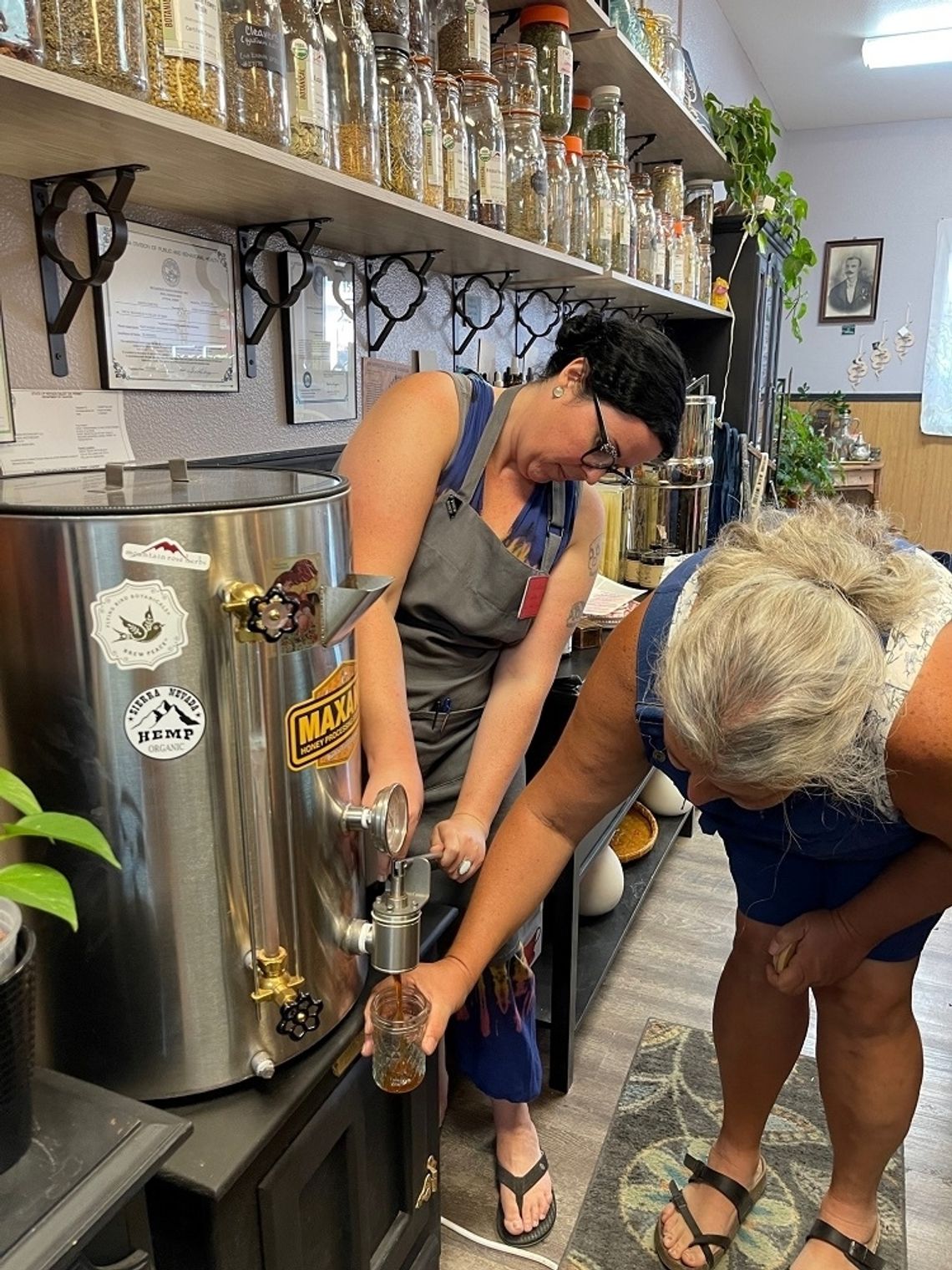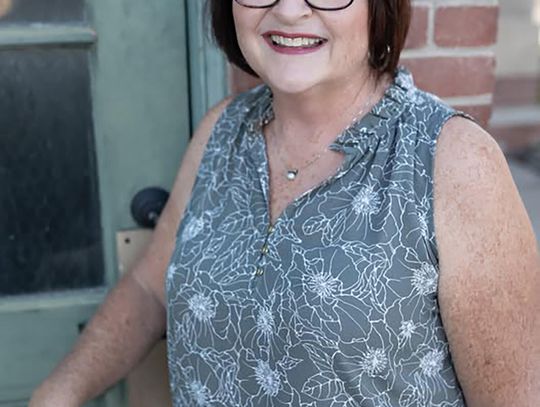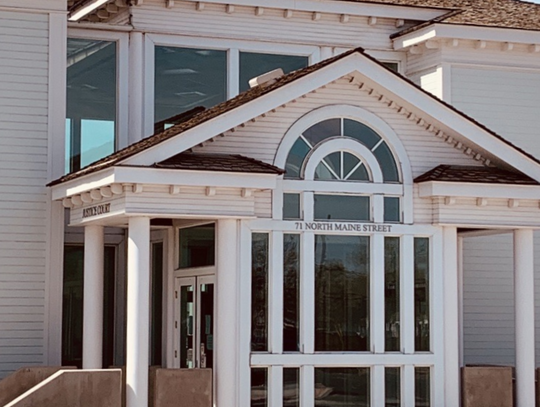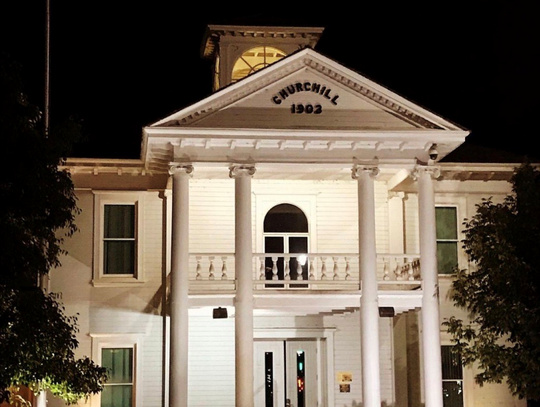There is a group of farmers in the Lahontan Valley who have revived an age-old practice when it comes to farming but don’t confuse this co-op with the sugar beet folks of 1911 or the dairy farmers and their modern dry-milk plant, these ladies are growing herbs and pitching in the equipment needed to process and manufacture value-added products to sell at the Great Basin Apothecary.
I walked in on Mandie Koeckes and Stacy Fisk this week pressing milky oats tincture for their own personal supply, testing out the first piece of equipment in the co-op, the stainless-steel press. Milky oats are the tops of the oat, available for about two weeks out of the year after the oat flowers and before the seeds harden to make the oat grain. It is considered to be prime for supporting the nervous system, can ease anxiety, and is a nutritive herb, rich in vitamins A, C, and E, in addition to zinc, manganese, and amino acids.
In a process akin to canning peaches or making pickles, the immature seed pods at the top of the oats are harvested and squeezed to produce a milky substance that is then preserved in an alcohol base which can extend the shelf-life up to 25 years. Mandie and Stacy were making use of an impressive piece of equipment – an actual press – to produce the Milky Oats and bottle it.
Members of the cooperative contribute their equipment for all to use, making their products marketable in the apothecary. Currently, Koeckes is working through her Good Manufacturing Practices, which are required for approval of the Dietary Supplement permits in preparation for an inspection by Food and Drug Administration inspectors. The apothecary is already inspected and permitted by the local health department.
“The goal is to support the responsible cultivation of these plant allies to ensure our customers and community gets exactly what they think they’re getting,” said Koeckes, “and it’s grown with love. The current model is to bring your container, get exactly the amount you need, and make no extra waste in the process.” The herbs in stock are all covered under the producers’ certificates everyone must have to supply the shop. “We’ve helped at least two new suppliers get growing by letting them know what we need them to have to be compliant to work with us.”
“Between Stacy and Jaime (Sammons) they are supplying about 30 percent of my herbs,” said Koeckes, “and then all of the incense herbs for the class I teach, they have kept me in horseradish and fire cider ingredients.”
The cooperative supplies the equipment necessary for proper certification and Good Manufacturing Practices, a Food and Drug Administration designation that recognizes consistency of product formulation.
Like the Milky Oats, much of what is manufactured at the Apothecary is seasonal, and it is all inspected by the local health department and falls under the Food Market Permit. Additionally, Koeckes is working with local bakeries and Telegraph Coffee which supply organic, locally roasted coffee that can be purchased in bulk in the store.
“Our main purpose is to establish a local food system,” she said. “To really get people familiar with what we have in the community. I really like the idea of being able to partner with everybody who wants to grow any different type of crop.”
She explained when one grower has an abundance of a crop, she can utilize that and when one grower may be short on a product, another may have an abundance.
“It’s not our typical crops,” Koeckes laughed. “I don’t know anyone else who grows ashwagandha here, I don’t know people who grow holy basil in quantities, I got three pounds of tulsi from Stacy, and it was gone in three months.”
Koeckes explained that she always tries to source from local farmers from whom she knows she can expect a certain level of land stewardship, with no synthetic fertilizer or pesticides. “I want to know I’m supporting a full-scale farm that does bees and regenerative soil practices but also grows food and medicinal herbs.” She says transparency with local growers is what she looks for because she can call them, ask about any crop, and incorporate that into the products available in the shop. The cooperative also provides a place where local farmers can ask each other about herbs and food, sharing knowledge.
“I want to provide a better space to do that for the public where people know they can get real, evidence-based information,” said Koeckes.
In addition to the Herbal Cooperative, the space at the Apothecary is home to regular workshops presented by local growers as well as the Sarah Berg Co. Sarah is a nurse and Ayurvedic practitioner who sees patients at the shop during off hours. She uses trauma-informed approaches and coaching to serve clients with seven different healing modalities including hypnotherapy and EFT. She also teaches several workshops at the shop.
Great Basin Apothecary and Herbal Cooperative are providing the community with a place for local producers and providers to bring natural healing and local products to a community hungry for the natural products that are such a benefit to their way of life.










Comment
Comments